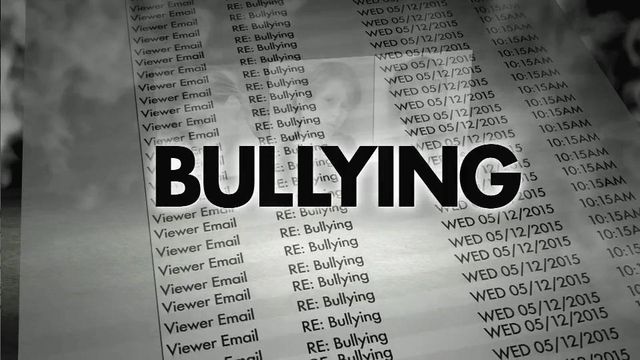Bullying at school: Brave kids tell their stories
The amount of feedback we have received on this issue begs the question, is bullying becoming more common? Or, are we becoming more sensitive, and more aware of it?
Posted — UpdatedWhen we first decided to do a special report about bullying, it wasn't a matter of finding families dealing with this issue, it was a matter of going through all of the emails from so many families who had experienced bullying and picking the stories the would resonate the most. The amount of feedback we have received on this issue begs the question, is bullying becoming more common? Or, are we becoming more sensitive, and more aware of it?
To be honest, I'm not sure I can answer this question even after the research that we did for this piece, but what I do know is that bullying has gotten meaner. Part of this I believe is our online/social media culture that allows unfiltered people to berate and criticize others with relative impunity. In a strange way people have translated this modus operandi into their face-to-face interactions, wrongly believing it's okay to say what's on your mind to another person even if it's cruel. Let's face it, all you have to do is look at what people post online to realize that adults are bullies, so why wouldn't kids be as well?
What surprised me the most about doing this story wasn't speaking to the parents; I expected them to be angry and justifiably emotional. But I was very surprised by the children, that they were able to articulate very clearly what others had done to hurt them and how it made them feel. Specifically, even young children were able to explain how afraid the bullying had made them. Right about now I can hear you sigh, and say: "Come on, when I was a kid we just called it teasing. Buck up."
But I think you might have a very different opinion if you truly understood that the majority of young people who commit suicide have experienced some type of bullying in their lives prior to making this tragic decision.
Ultimately, it's our responsibility as adults, as parents, as teachers, and as school administrators, to identify the bullying and deal with it.
Frankly, I think that schools are so overwhelmed by the number of complaints they receive and the emotional nature of these complaints that it's difficult for them to handle each case thoroughly and fully satisfy the concerned parents.
All schools and school systems have policies about bullying, but it's not just about policies, procedures and guidelines, it's about creating a culture where bullying won't be tolerated. It's about creating a culture where students respect one another and their teachers. I wish I had the magic answers that would make this happen overnight, but I think it's a process, one that can't be totally left up to the schools. The message about treating others with respect must begin at home, and then schools will have a better foundation to build upon.
One student I interviewed, Amy Arnold, a 17-year-old who was bullied her entire life, made fun of for having a large nose, gave me one specific example of a small thing she does that could be the start of changing this bullying culture. She told me if she sees someone being made fun of, she sits right down with that person in the cafeteria and has lunch with him or her to show them someone cares. It's a small gesture with big ramifications. What if we all took a moment out of our busy lives and committed to pulling up a chair and spending a little time with a person that we knew was in pain?
Related Topics
Copyright 2024 by Capitol Broadcasting Company. All rights reserved. This material may not be published, broadcast, rewritten or redistributed.






